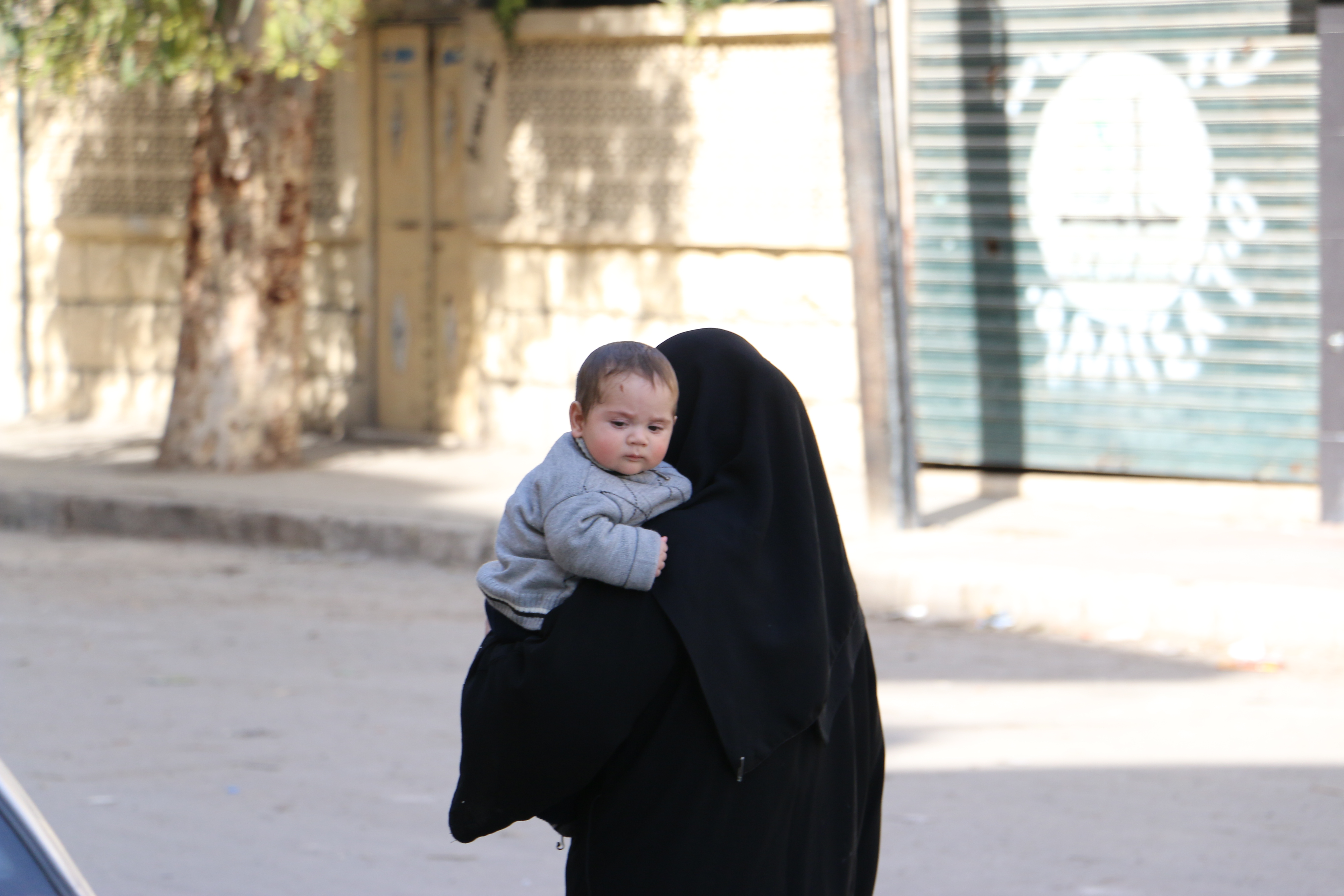A Difficult Birth

My name is Farah. I am a 25 year-old wife and mother-of-two. I used to live in the capital Damascus before the outbreak of the Syrian revolution. Later I returned to live in my town, Kafr Rumah, in the southern countryside of Idlib. My family consists of my father, mother, two brothers and six sisters.
I finished high school in 2010 and joined the faculty of arts to study philosophy, until my now-husband proposed to me while I was in my first year. he asked me to leave college, and after two months of being engaged we got married on November 17, 2010.
My husband worked in a refrigerator factory next to al-Sibiah in Damascus’s countryside, where we used to live. In March 2011, demonstrations began in Syria and regime repression led to campaigns of murder, arrest and displacement.
On the morning of June 8, 2013, my husband went out to buy bread. I later learned that soldiers at the army checkpoint near our neighbourhood had arrested him and sent him to an unknown destination. The news hit me hard, especially as I was due to give birth to my second child that month and I had no support apart from God and my husband.
One night, barely 10 days after my husband’s arrest, my labour pains began. It was a tough night. I managed with great difficulty to get to the house next door. I asked our neighbour to take me to the hospital. His wife knew I was pregnant with my second child and agreed to look after my first son, who was six and-a- half years old.
I thought that a woman on the verge of giving birth would not be stopped at the regime checkpoints. But I was completely wrong. At the first checkpoint we came to, a regime soldier army stopped us and asked for our IDs. Half an hour passed, with me in a state of collapse from my labour pains. This cold-blooded soldier returned and began his investigations, “Where are you from? Where are you going? What do you carry with you?” He asked other stupid questions, then let us go.
There was only one nurse at the hospital, who did not seem to care much about my condition when she admitted me. I screamed and screamed until I made her contact the duty doctor and ask him to come to the hospital. I waited a whole hour until he arrived; I felt like someone was stabbing me repeatedly.
After a long struggle and a difficult birth, my son was born.
My treatment cost 20,000 Syrian pounds, which I didn’t have. I had to ask our neighbour to pay the bill until I could return home and find the money.
I was in a lot of pain on our way back home. My newborn was screaming his lungs out. We arrived at the checkpoint where we had been stopped en route to the hospital. There, more or less the same scene was repeated. A soldier stopped us and asked for our IDs. He left us for nearly half an hour, came back to arrogantly throw the IDs in the car and asked me, “Did the birth go well, did you get that mule out of your belly?” I wanted to spit in his face, but I didn’t dare to do so out of fear for the safety of my child and those who were with me.
A few days later, when I had recovered a little, I sold my wedding ring to pay back my neighbour. Then I began the long process of searching for my husband amid the security branches of the regime.
Nermin Mustafa, 25, is from Idlib and has two children.
Read the Arabic version of this article here

